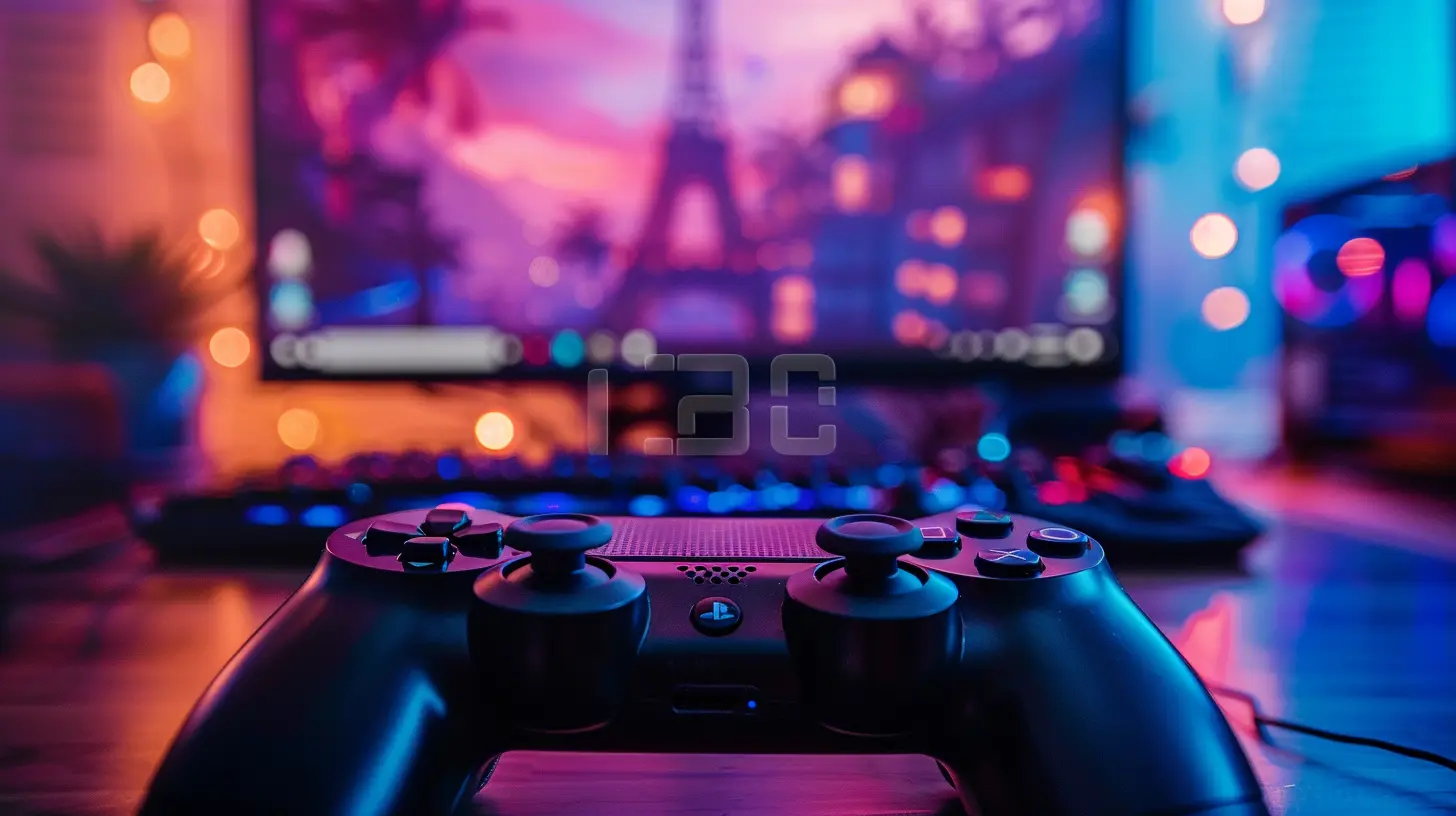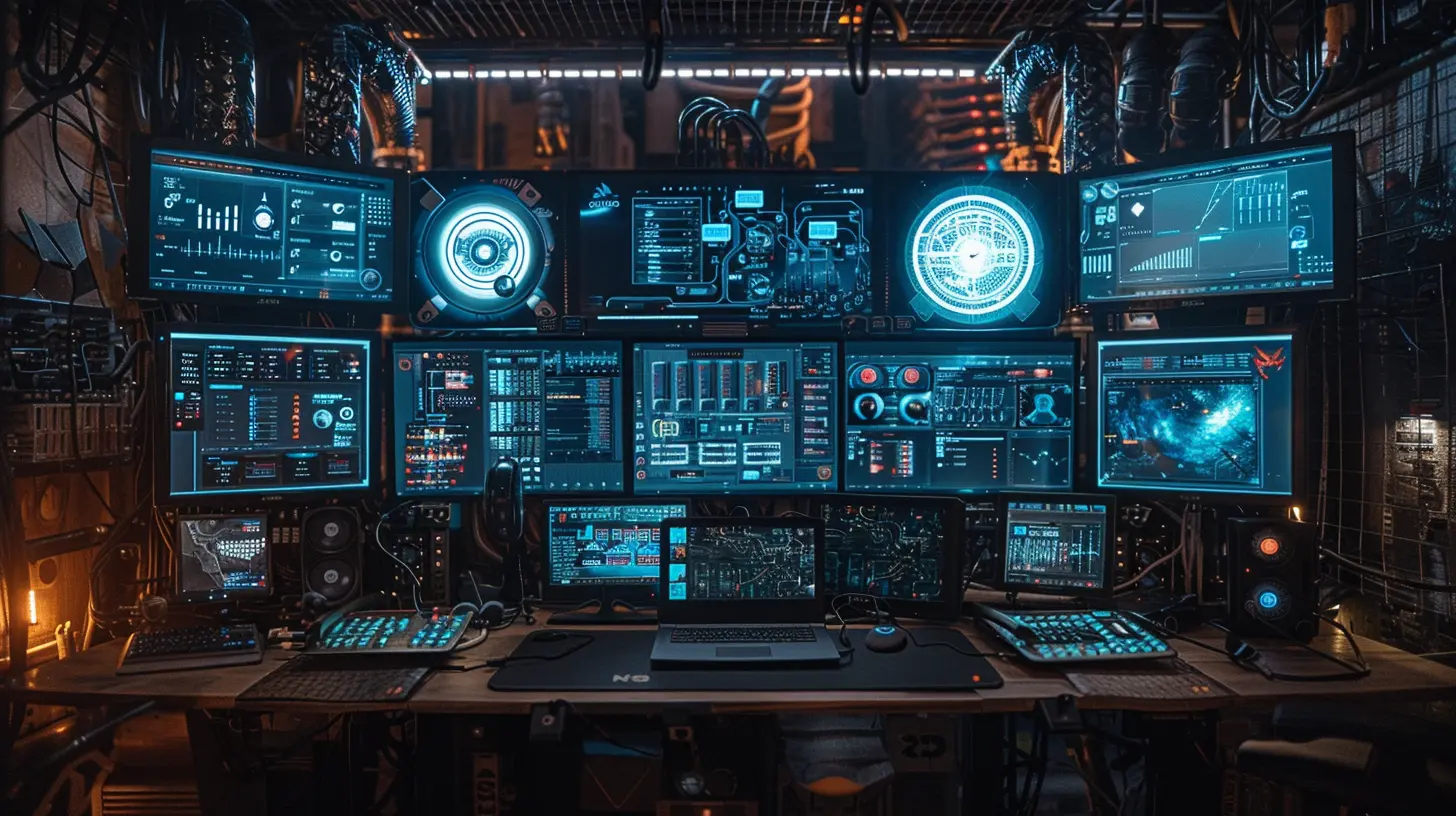24 April 2025
When it comes to finding the perfect gaming laptop, it’s like searching for the Holy Grail of gaming tech. You need a machine that can keep up with your gaming fantasies, deliver buttery-smooth graphics, and not leave you broke in the process. But hey, gaming laptops are no small investment, and understanding what you’re paying for is key.
So, what should you look for in a gaming laptop? Let me break it all down for you. From CPUs to GPUs, screens to battery life, we’re cracking open the treasure chest of tech specs to help you find your ultimate gaming companion. Buckle up; it’s going to be one pixel-perfect ride. 
1. Processor (CPU): The Brain of the Beast
Think of the processor as the beating heart of your gaming laptop. It's the decision-maker, the one calling all the shots. A weak CPU is like trying to build a sandcastle with a spoon—it just doesn’t get the job done. For gaming, you'll want a processor with enough muscle to push through demanding games and multitask like a pro.Intel vs AMD: A Battle for the Ages
We’ve been watching Intel and AMD spar like gladiators in the Colosseum for years. Both brands have powerful processors on offer. Here’s where to focus:- Intel Core i5/i7/i9: Great for gaming, with i7 and i9 being the sweet spot for high-end performance.
- AMD Ryzen 5/7/9: Ryzen CPUs are fantastic for multitasking, streaming, and, of course, gaming. Ryzen 7 or 9 models are golden for serious gamers.
Unless you’re running retro classics or indie games, aim for at least a quad-core CPU (but really, hex-core or more is ideal).
Clock Speed and Generation Matter
The higher the clock speed (measured in GHz), the snappier your gameplay. Look for 3.5 GHz or higher to avoid the dreaded lag. And don’t forget generational gaps—newer CPUs are optimized for modern games and run way more efficiently.
2. Graphics Card (GPU): The Soul of the Game
Let’s not kid ourselves—if your GPU is a dud, your gaming experience will suffer. The GPU is the magic wand behind those jaw-dropping visuals. It’s why your explosions shimmer, why shadows look realistic, and why your enemies’ armor glints in the sunlight.Dedicated vs Integrated GPU
- Integrated GPU: These are fine for lightweight tasks but will crumble under the weight of AAA games. Avoid them for gaming laptops unless you’re strictly into casual titles.- Dedicated GPU: Now we’re talking. NVIDIA and AMD lead the charge here, with dedicated GPUs that light up your games like a fireworks show.
NVIDIA GeForce vs AMD Radeon
- NVIDIA GeForce GTX/RTX Series: If you’re aiming for the stars (and ray tracing), the RTX 30-series is a dream for hardcore gamers.- AMD Radeon RX Series: Solid performance, often at a better price point. Ideal for budget-conscious gamers who still want stellar graphics.
A good rule of thumb? Go for at least 4GB of VRAM, but for modern games, 6GB or more is ideal. 
3. RAM: The Unsung Hero
Think of RAM as your gaming laptop’s short-term memory. The more you have, the more your laptop can handle without breaking a sweat. Too little, and you'll end up in a slideshow of frame drops and stutters.How Much is Enough?
- 8GB: The absolute minimum for gaming laptops. It’ll manage older or less demanding games but will struggle with newer AAA titles.- 16GB: The gold standard for most gamers. Handles nearly all games and multitasking with ease.
- 32GB or More: Overkill for most, unless you’re into hardcore gaming, streaming, and content creation simultaneously.

4. Storage: SSD vs HDD
Storage is where your games live and breathe. It can make a world of difference to loading times, boot speeds, and pretty much every corner of your gaming experience.Solid-State Drive (SSD)
SSDs are the Ferraris of storage. They’re fast, dependable, and make your gaming life 10x better. A laptop with an SSD will load games in the blink of an eye and keep gameplay smooth.Hard Disk Drive (HDD)
HDDs are your slow but sturdy workhorses. They’re cheaper and offer more storage for your money, but they pale in comparison to SSDs when it comes to speed.The ideal setup? A combo of both—an SSD for your OS and games and an HDD for extra storage. Aim for at least 512GB of SSD space, especially if you’re a serial game downloader.
5. Screen: Your Window Into the Gaming World
Your gaming laptop’s display is how you experience everything—from vast, open-world landscapes to high-octane car chases. Picking the right screen is just as important as the hardware inside.Resolution
- 1080p (FHD): The standard for gaming laptops. Perfect balance of quality and performance.- 1440p (QHD): A sweet upgrade over FHD with sharper visuals. Great for gamers who crave visual fidelity.
- 2160p (4K): Absolutely stunning, but brutally demanding on your hardware. Only go for this if you’re pairing it with a top-tier GPU.
Refresh Rate
Your refresh rate determines how smooth your gameplay feels. A higher refresh rate means crisper visuals and less lag.- 60Hz: The baseline for gaming laptops.
- 120Hz / 144Hz: A significant step up for smoother, responsive gameplay.
- 240Hz or Higher: Pure decadence for competitive gamers and eSports enthusiasts.
Panel Type
- IPS Panels: Best for color accuracy and wide viewing angles (great for rich, vibrant games).- TN Panels: Faster response times but weaker colors. Ideal for eSports.
- OLED Panels: Jaw-dropping visuals with infinite contrast. Expensive, but worth it if you’re a stickler for beauty.
6. Battery Life: The Eternal Struggle
Let’s face it—gaming laptops and long battery life don’t exactly go hand in hand. High-performance hardware guzzles power faster than you can say “frame rate.”Most gaming laptops offer 3-5 hours of battery life during heavy gameplay. If you’re away from an outlet often, look for models with optimized power settings or NVIDIA’s Advanced Optimus feature. But honestly? Keep that charger close, because battery life will always be a compromise in gaming laptops.
7. Cooling System: Keeping the Heat at Bay
Gaming laptops are like sports cars—they pack a lot of power, but they heat up quick. Ventilation and cooling systems are crucial. Without them, your laptop will turn into a very expensive toaster in the middle of a boss fight.What to Watch For
- Vapor Chambers: Fancy, but highly effective for premium laptops.- Dual Fans: The bread and butter of laptop cooling.
- Large Air Vents: Helps disperse heat efficiently.
And hey, don’t forget to use your laptop on a hard, flat surface. Gaming on your bed? It’s a one-way ticket to overheating city.
8. Build Quality and Portability: Looks and Durability
Your gaming laptop isn’t just a powerhouse—it’s a companion. Whether you're hauling it to LAN parties or simply using it on your couch, you want something that feels solid and looks good.Material Matters
- Metal Frames: Tougher and more durable but heavier.- Plastic Frames: Lighter and cheaper but slightly less sturdy.
Weight and Size
If portability is a priority, aim for a 15-inch screen size, weighing around 4-5 lbs. Need more power? Go for the big boys with 17-inch screens, though they’re bulkier to carry around.9. Audio: Hear Every Footstep
Don’t overlook audio quality. Immersive sound can make the difference between hearing an enemy sneaking up on you or becoming their next target.Look for laptops with Dolby Atmos, DTS:X Ultra, or other high-quality audio systems. And if built-in speakers don’t cut it, grab a good pair of gaming headphones.
10. Ports and Connectivity: Don’t Get Caught Short
Lastly, make sure your gaming laptop has the right ports and connectivity features:- USB-C and USB 3.2: For faster data transfers.
- HDMI/DisplayPort: Hook up to external monitors for a bigger gaming setup.
- Ethernet Port: A must-have for stable online gaming.
- Wi-Fi 6: The latest standard for blazing internet speeds.
Final Thoughts
Choosing a gaming laptop is a balancing act. It’s part science, part art, and 100% personal preference. Whether you're chasing ultra settings, eSports dominance, or an affordable way to enjoy your favorite titles, now you’ve got a roadmap. Treat your gaming laptop like an investment, because it’s more than just a piece of tech—it’s your portal to countless adventures, epic battles, and unforgettable stories.And remember: no system is perfect. Find what matters most to you, and let that guide your choice. Happy gaming!


